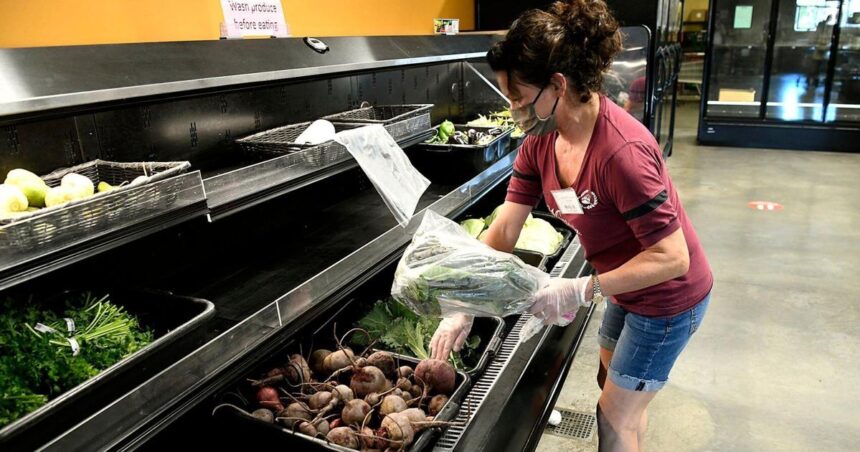Arlee High School’s cafeteria remains open four days a week during the summer break to provide affordable meals to families in need. Children eat for free, while adults pay a nominal fee of around $3 for breakfast and $5 for lunch.
Located in the Jocko Valley at the base of the Mission Mountains on the Flathead Indian Reservation, the small community of Arlee has about 725 residents, half of whom are Native American. Poverty is prevalent due to systemic barriers, with approximately 34% of the population living in poverty compared to 12% statewide.
During the school year, hunger is a visible sign of families struggling to make ends meet. The district provides free meals and a backpack of food for every student to take home on weekends.
People are also reading…
Superintendent Mike Perry acknowledges the community’s needs, stating, “We try to do what we can.” Arlee High School participates in the Summer Food Service Program, one of the initiatives aimed at reducing childhood hunger during the summer months through a partnership between Montana’s health department and education agency.
Federal funding from the USDA is used by schools and community organizations to provide meals in areas where at least half the children qualify for free or reduced lunches based on household income. Childhood hunger in Montana is a growing concern, with one in six children living in food-insecure homes.
Programs like the Summer EBT are introduced to support families during the summer months, bridging the gap for children who lose access to meals provided during the school day. Montana’s efforts to alleviate hunger include various initiatives to assist families.
Through the Summer EBT program, eligible children receive $40 per summer month on a debit card. Montana has opted into the program and aims to provide assistance to over 70,000 children. Though there may be logistical challenges, stakeholders are committed to implementing the program successfully.
Other summer programs
In addition to Summer EBT, families can access other food assistance programs during the summer, such as congregate meal programs and to-go meal options. These programs aim to address food insecurity in various ways, supporting families dealing with financial difficulties.
Despite financial challenges faced by schools like Arlee, efforts are made to ensure students have access to meals year-round. The commitment to providing nourishment and support to students reflects the community’s dedication to helping those in need.
Carly Graf is the State Bureau health care reporter for Lee Montana.





